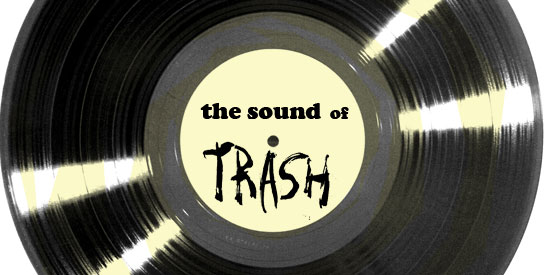 Cannibal Holocaust was a film that affected me like few others. I was left deeply sickened, disturbed and, strangely, in love. The level of distress this infamous film was able to implant in my psyche, to me, speaks volumes for its execution. The cannibal genre of movies may be rife with wretched examples of failed shock, but I consider Cannibal Holocaust something quite different. It is a benchmark none have been able to reach despite myriad attempts.
Cannibal Holocaust was a film that affected me like few others. I was left deeply sickened, disturbed and, strangely, in love. The level of distress this infamous film was able to implant in my psyche, to me, speaks volumes for its execution. The cannibal genre of movies may be rife with wretched examples of failed shock, but I consider Cannibal Holocaust something quite different. It is a benchmark none have been able to reach despite myriad attempts.
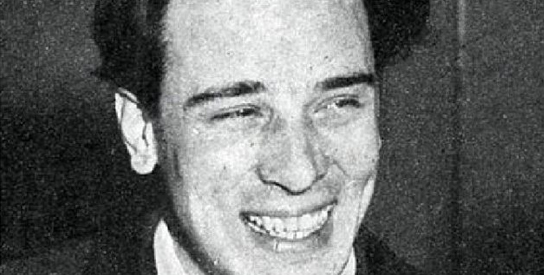
I think back upon that first viewing and focus on why I responded as I did. Sure… the film was loaded with graphic violence toward both humans and animals, and it shone a light in the eyes of ‘civilised’ man’s lesser qualities that I wasn’t necessarily ready for, but this alone was not enough. What pushed this movie into classic horror status was the idiosyncratic score. It oscillated between pastoral whimsy and droning horror. The juxtaposition of these polar opposite musical flavours against the mounting dread of the visuals created a disorienting effect. It was one that made me feel unsafe. This was my introduction to the work of composer, Riz Ortolani.
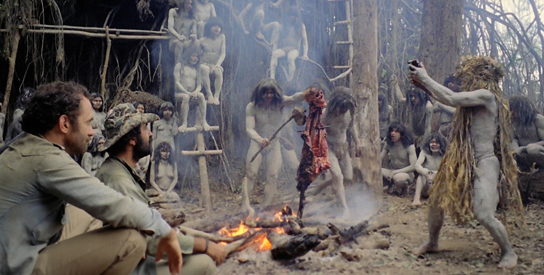
The movie world is still mourning the news of Riz Ortolani’s death last week at the age of 87. Italian news reports his death was the result of bronchitis. It is a monumental loss that will only worm its way deeper as we encounter work we may have forgotten in the years to come. With over 200 composer credits to his name, it’s safe to say very few of us have had the pleasure of hearing his entire body of work, but even just taking in the highlights is enough to illustrate his immense importance.
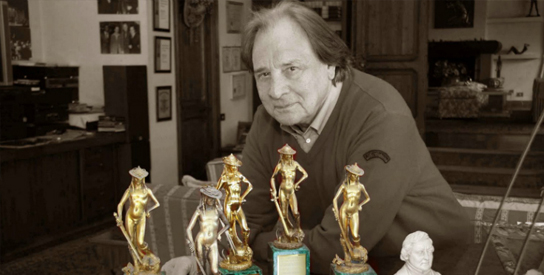
Ortolani’s movie career started about as well as anyone could hope. The main song More, from the pseudo-documentary Mondo Cane, nabbed Ortolani a Grammy win and an Oscar nomination. More was somewhat typical-sounding for the era, albeit masterfully executed, and contained the use of sweeping strings that would become something of a trademark for both Ortolani’s work and Italian film in general. Such success ensured a steady stream of film score work all over the world. More recently, his music has been mined by the likes of Quentin Tarantino for both Kill Bill movies and Django Unchained as well popular cult favourite Drive. This trend is indicative of the influence his work continues to have.
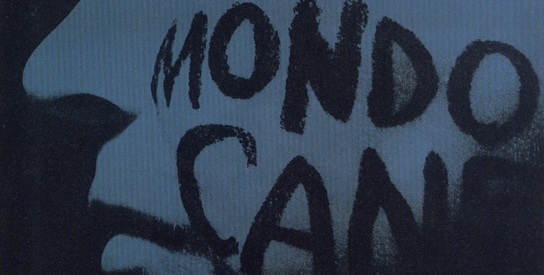
It seemed, however, Ortolani was most at home composing scores for Italian exploitation movies. His musical touch made great films greater and bad films varying levels of bearable. With so much to choose from, it would be impossible to give a decent overview of his work; rather, I thought I would share a selection of pieces that I respond to personally. It’s easy to take the presence of someone like Ortolani for granted. His output was so prolific that he became somewhat ubiquitous in the exploitation world. It is only when revisiting his work that we realise there will never be another quite like him and, had it not been for him, many films we hold dear now may not have been so great.
As mentioned earlier, Cannibal Holocaust was my introduction to Ortolani. I still find Adulteress’ Punishment a disturbing piece of music. In stark contrast to the airy strings earlier in the film, this piece drives the point home. We are in a strange, inexplicable hell. Here is what it sounds like.
This Grammy-winning song for Mondo Cane announced Ortolani to the world. While not necessarily a personal favourite, it is worth hearing simply for the doors this opened.
This fantastic track from Ruggero Deodato’s classic House on the Edge of the Park, delivers a specifically Italian burst of disco funk. Fans on Italo Disco will appreciate this regardless of their opinion of horror film.
Another example of Ortolani’s propensity toward composing achingly beautiful, string swept pieces for rather grisly imagery. This time, Lucio Fulci’s wonderful Don’t Torture a Duckling.
A personal favourite of mine from 1967’s, Day of Anger. It gives the great spaghetti western scores of Morricone a run for its money. This piece also made an appearance in Tarantino’s Django Unchained.
Confessions of a Police Captain is a great Italian crime film from 1971. This piece exemplifies the sound of Italian crime films perfectly. A lurching, vaguely foreboding opening gives way to sweeping, dramatic strings.
A sample from the Italian TV series Ritratto di Donna Velata. Seedy, ambient good times.
The most modern example on this list from the film Drive (originally featured in Goodbye Uncle Tom). Featuring sultry vocals by Katyna Ranieri.
Another personal favourite. This piece from Hospitals: The White Mafia, opens with creepy suspense before giving way to a simplistic synth line. The result is rather wonderful.
This piece is wonderful in its own right, but my main reason for including it is because the film is called Old Shatterhand.
May you rest in peace, Riz Ortolani. Your legacy shall not be forgotten.
– Matthew Revert





1 comment
Miklos Jancso ... and others: RIP | Cagey Films says:
Feb 3, 2015
[…] Riz Ortolani probably did as much to define the sound and tone of popular Italian cinema as the more widely known Ennio Morricone, but Ortolani approached movies from a different angle. His work is less eccentric than Morricone’s – often lyrical and melodic, jazz inflected, at times falling deeply into a laid-back lounge style. What was strikingly original was the way he would apply this to material which visually contradicted the music. The harsh brutality of films like Ruggero Deodato’s Cannibal Holocaust and House On the Edge of the Park, or Lucio Fulci’s Don’t Torture a Duckling is accompanied by lush, romantic tracks which make the images all the more horrific (the influence of this can be seen in film’s like Alex Cox’s Walker, in which a battle/massacre is accompanied by a light, melodic piece composed by Joe Strummer which is the only sound heard over the bloody visuals). Despite Ortolani’s long and prolific career (between film and television work, he wrote and/or conducted almost three hundred scores), it’s both annoying and illuminating to note the somewhat backhanded obituary by Bruce Weber in the New York Times, which refers to “dozens” of scores rather than hundreds, and overall takes a slightly condescending and dismissive tone: the only work of real significance apparently was More, his theme for Jacopetti and Prosperi’s Mondo Cane which, with lyrics later added, became a much-covered pop song – including a version by Sinatra, accompanied by Count Basie and his orchestra. Despite that track’s success (it was nominated for an Oscar), Ortolani only sporadically worked on English and American movies, the majority of his work being in Italian film and television. This post gathers together a fairly representative selection of tracks available on YouTube. […]